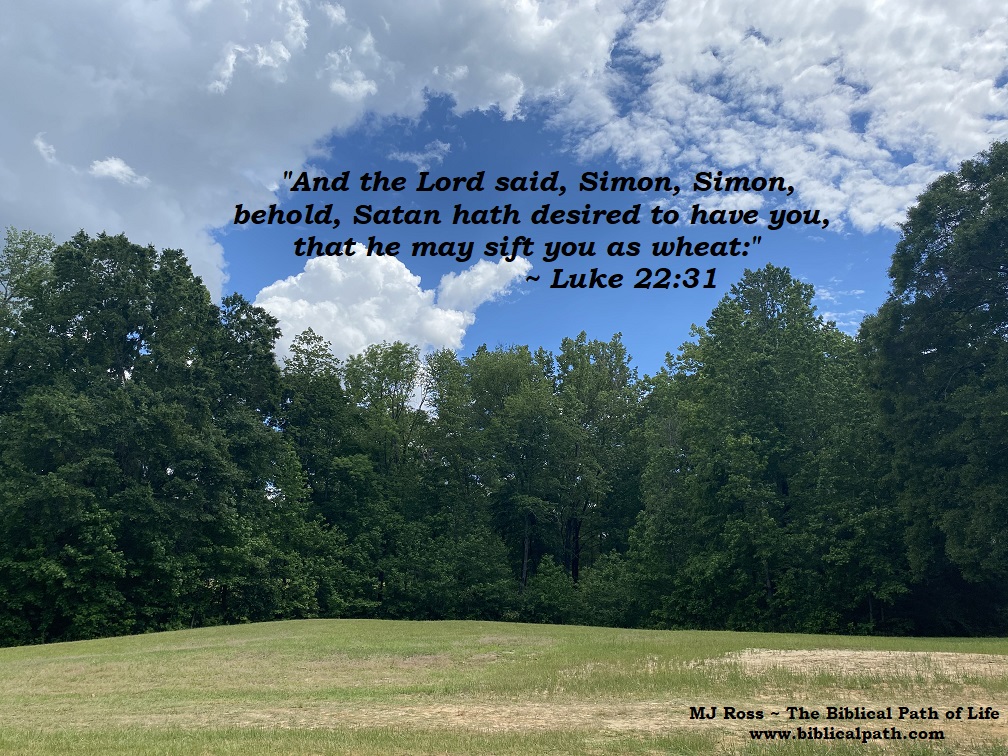
“So that ye were ensamples to all that believe in Macedonia and Achaia.”
1 Thessalonians 1:7
Paul remembered the missionary journey that led to the establishment of the church at Thessalonica. “For yourselves, brethren, know our entrance in unto you, that it was not in vain” (1 Thessalonians 2:1). He also recalled the short amount of time they had there – for it was not enough to teach them all they needed to know. The book of First Thessalonians was written to the church at Thessalonica, which Paul established on his second missionary journey (see Acts 17). Remember that when there was an uprising incited by Jews who rejected the teaching of Jesus, Paul and Silas were sent away by night – keeping them safe. They were only there for three Sabbaths, but when the people at Thessalonica heard the Gospel message preached by Paul and Silas, enough of them believed that a church was established.
Read one of the most important things the people of Thessalonica did after they became Believers (Christians). “And ye became followers of us, and of the Lord, having received the word in much affliction, with joy of the Holy Ghost” (1 Thessalonians 1:6). Followers means “an imitator.” They had heard Paul’s preaching, saw his response in a time of tribulation, and had imitated him in his words and deeds. Because of these things, they became followers of the Lord, suffering affliction, but with joy.
It is important to understand that putting one’s trust in Jesus is good (becoming a Christian), but it is just as important to put the principles of God’s Word into action in one’s life. It is then that God is able to work, and the world will see what God has done in the heart. Some call this putting one’s faith into action. Remember what faith means. Faith means “faith in Christ as able to work miracles, healing the sick; the means of appropriating what God in Christ has for man resulting in the transformation of man’s character and way of life – also called Christian faith.” Read what Paul recognized in these Believers. “Remembering without ceasing your work of faith, and labour of love, and patience of hope in our Lord Jesus Christ, in the sight of God and our Father” (1 Thessalonians 1:3). Not only had a church been established, but also the Christians at Thessalonica were living examples into the areas around. They had appropriated their faith in Christ into their lives, transforming their character and way of life. This revealed their Christian faith. “So that ye were ensamples to all that believe in Macedonia and Achaia” (1 Thessalonians 1:7). Because they were living examples, their testimony of the power of God unto salvation in their lives was so great that it spread – for others in the areas around heard of the change that had taken place in their lives: how they “turned to God from idols to serve the living and true God” (1 Thessalonians 1:9).
Because of this, one can understand how the Church at Thessalonica became such great living examples. Compare I Thessalonians 1:3, 5-7 with what is recorded in James 2:17-18: “17. Even so faith, if it hath not works, is dead, being alone. 18. Yea, a man may say, Thou hast faith, and I have works: shew me thy faith without thy works, and I will shew thee my faith by my works.” James was teaching Christians that faith and works go hand in hand. This is to reveal Jesus to the lost world. Because faith is an issue of the heart (for one believes in the heart, then confesses with the mouth, see Romans 10:9-10), physical works are a necessity to show the world what has taken place in the heart. “19. Thou believest that there is one God; thou doest well: the devils also believe, and tremble. 20. But wilt thou know, O vain man, that faith without works is dead?” (James 2:19-20). James wrote, “that faith without works is dead”. This is an indication of one who has only confessed with the mouth that they believe, but never truly believed in the heart – much like the devils. Understand that unless it is a “saving faith,” it is counterfeit. This kind of faith lulls people into a false security of eternal life.
James did not just teach that with faith comes works, he cited examples from the Old Testament that all would remember. See the example of Abraham. “21. Was not Abraham our father justified by works, when he had offered Isaac his son upon the altar? 22. Seest thou how faith wrought with his works, and by works was faith made perfect? 23. And the scripture was fulfilled which saith, Abraham believed God, and it was imputed unto him for righteousness: and he was called the Friend of God. 24. Ye see then how that by works a man is justified, and not by faith only” (James 2:21-24). By Abraham’s act of offering his son, Isaac, it revealed the faith he had had in his heart for all of those years. Abraham’s faith was “justified by works”, revealing his heart to all of the world.
The people in the church of Thessalonica had followed Paul and Silas’ teachings of Christ, appropriated their faith, and many around had recognized their Christ-like lives. This made them viable witnesses for Jesus.
Have you appropriated your faith in Christ, becoming a living witness, where others can recognize Jesus in you?








